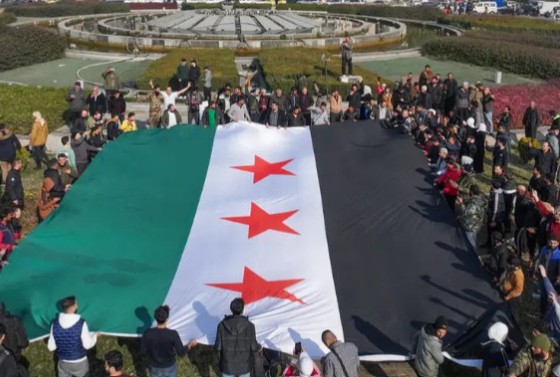Syria to Hold First Parliamentary Election on October 5

Syria will hold its first parliamentary elections under its new administration on October 5. This marks a pivotal moment in the war torn nation’s political history following the removal of President Bashar al-Assad in December 2024, ending his authoritarian rule after nearly 14 years of civil war.
The election is being positioned by government officials as a key step toward broader democratic reforms, with the new parliament expected to play a foundational role in rebuilding state institutions and drafting a revised national framework.
However, critics and human rights observers warn that the current political landscape remains deeply flawed, citing a lack of representation for ethnic and religious minority groups, limited freedom of the press, and restrictions on opposition parties.
Background: Assad’s Fall and the Rise of a New Political Order
Assad’s ousting in late 2024 followed years of sustained military losses, international isolation, and mounting domestic unrest. His regime, in power since 2000, had faced widespread condemnation for human rights abuses, including the use of chemical weapons, indiscriminate bombings, and the suppression of dissent.
The Islamist-led coalition that assumed power in early 2025 emerged from a fractured opposition that previously struggled to unify during the civil war. Its leadership has promised to pursue “inclusive governance” and post-war reconstruction, but skeptics argue that the absence of secular and minority voices in transitional bodies suggests otherwise.
Concerns Over Minority Rights and Political Inclusion
Syria is a religiously and ethnically diverse country, home to Sunni Arabs, Alawites, Christians, Kurds, Druze, and others. Under Assad, minorities particularly the Alawite community held significant power. The current administration, dominated by Islamist factions, has yet to present a clear roadmap for ensuring minority protections and equal political participation.
“Free elections must involve more than casting a ballot,” said one regional analyst. “It means allowing all groups to organize, campaign, and vote without fear or intimidation. That’s not the Syria we see today.”
Human rights groups have reported continued suppression of dissent, especially among Kurdish political activists and women’s rights organizations, raising doubts about the fairness of the upcoming vote.
International Reactions: Cautious Optimism or Strategic Silence?
Global reactions to Syria’s political transition have been mixed. While some countries have welcomed the prospect of elections as a step toward stability, others remain skeptical.
The United Nations has not officially endorsed the upcoming vote and has reiterated calls for a genuinely inclusive political process, in line with UN Security Council Resolution 2254, which calls for democratic elections under UN supervision.
What to Watch:
Whether independent observers will be allowed to monitor the election.
How minority groups, including Kurds and Christians, are represented on candidate lists.
The level of voter turnout amid lingering security and economic challenges.
Potential international recognition (or rejection) of the new government’s legitimacy.
A Step Forward or a Change in Name Only?
While the October 5 elections are being promoted as a turning point in Syria’s post-war era, many remain unconvinced that true democracy is on the horizon. Without broad representation, legal reforms, and freedom of political expression, critics say Syria risks replacing one authoritarian regime with another this time under different branding.

https://qtjpqhtfcs.wordpress.com
https://dwspqdxcgw.wordpress.com
https://xrsaugpsya.wordpress.com
https://gxvkxeawwa.wordpress.com
https://cxadxqpked.wordpress.com
https://akiwdiycje.wordpress.com
https://iqakruyprf.wordpress.com
https://hrjcdfdcvj.wordpress.com
https://wryxvrrhxe.wordpress.com